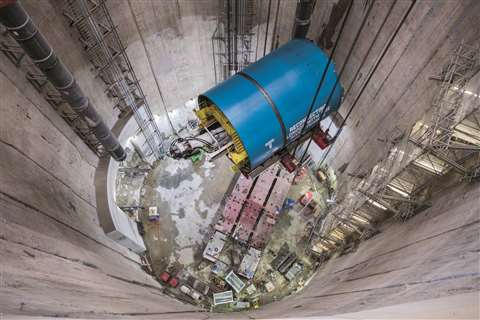Call for UK infrastructure bank
31 January 2019

The setting up of a UK infrastructure bank ahead of Brexit (the UK’s decision to leave the EU) has been called for by a government sub-committee, as the country will lose access to the European Investment Bank (EIB).
The House of Lords’ EU Financial Affairs Sub-Committee has published a report on Brexit: the European Investment Bank, which calls on the UK government to consider establishing a UK infrastructure bank.
However, Jonathan Hart, partner and infrastructure expert at international law firm Pinsent Masons said, “Replacing the EIB with a UK Infrastructure Bank is not a panacea – more needs to be done to regain international investors’ confidence too.”
The sub-committee said that since joining the EU in 1973, the UK’s infrastructure had been the beneficiary of more than €118 billion of lending from the EIB. As the UK will lose access to the EIB after Brexit, the sub-committee said the government should consult on establishing a UK infrastructure bank.
It said this should be explored within the government’s infrastructure finance review and, depending on the outcome of this review, be part of its National Infrastructure Strategy.
It said there had already been a marked decline in funding from the EIB since the Brexit referendum and the triggering of Article 50 to quit the EU. Despite this and the fact that the UK will lose access to the EIB after Brexit, the sub-committee said the government had said little about any future relationship with the EIB or possible domestic alternatives.
Baroness Falkner of Margravine, chair of the EU Financial Affairs Sub-Committee, said, “For the last 45 years, the UK has relied on the European Investment Bank to invest in all manner of vital infrastructure projects such as Crossrail, London’s Super Sewer, the expansion of Manchester’s tram network, and Scotland’s Beatrice offshore windfarm.”

She said, “The UK’s infrastructure, and the industries that depend on infrastructure spending, will be hurt if the government does not quickly find a way of plugging the funding gap that will be created if access to the EIB is lost after Brexit.
“We’re calling on the government to give serious and swift consideration to the creation of a UK infrastructure bank. It also needs to come clean about why it has not claimed any share of the EIB’s profits, which for the UK could amount to €7.6 billion.”
The report found that losing access to the EIB could lead to a significant funding gap, especially for large-scale infrastructure projects. The decline in EIB funding was said to be 87%, plus an EIF (European Investment Fund) reduction of 91%, since the referendum and the triggering of Article 50, and this was described as “striking”.
Unless it is delayed, the UK is due to leave the EU on March 29, 2019. The report said that with so little time left until Brexit, the lack of any meaningful proposals on a future relationship with the EIB or domestic alternatives was disappointing.
International confidence
At Pinsent Masons, Hart said, “Replacing the EIB with a UK Infrastructure Bank is not a panacea – more needs to be done to regain international investors’ confidence too.
“The UK’s political risk is now a major issue for investors and making long-term investment decisions is increasingly challenging.”

He added, “However, a fact which is often forgotten is that the UK sets the gold standard for private financing structures. Although challenging, this is an opportunity to de-toxify the use of private finance in government infrastructure following the announcement in last year’s Autumn Statement, where PFI (the Private Finance Initiative) and PF2 (the model at that time) were abolished by the Chancellor.”
He said that the devolved governments in Wales and Scotland demonstrated there was still a place for PPP (public-private partnership) models alongside other forms of procurement and funding for projects.
“The successful financing for the Thames Tideway super-tunnel (in London) was also seen as a major step forward for allowing private investment into specific projects, but the industry may need to prepare for an unduly politicised approach and closer regulatory scrutiny in the wake of Brexit.”




